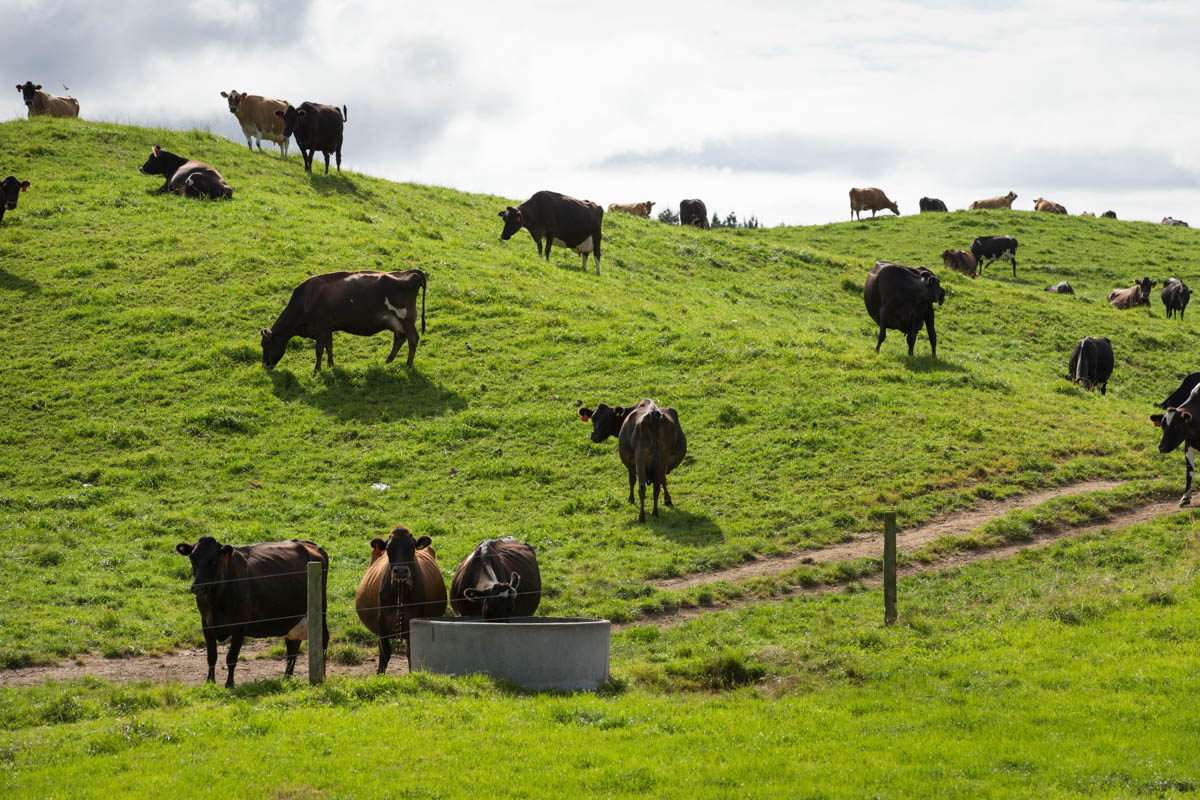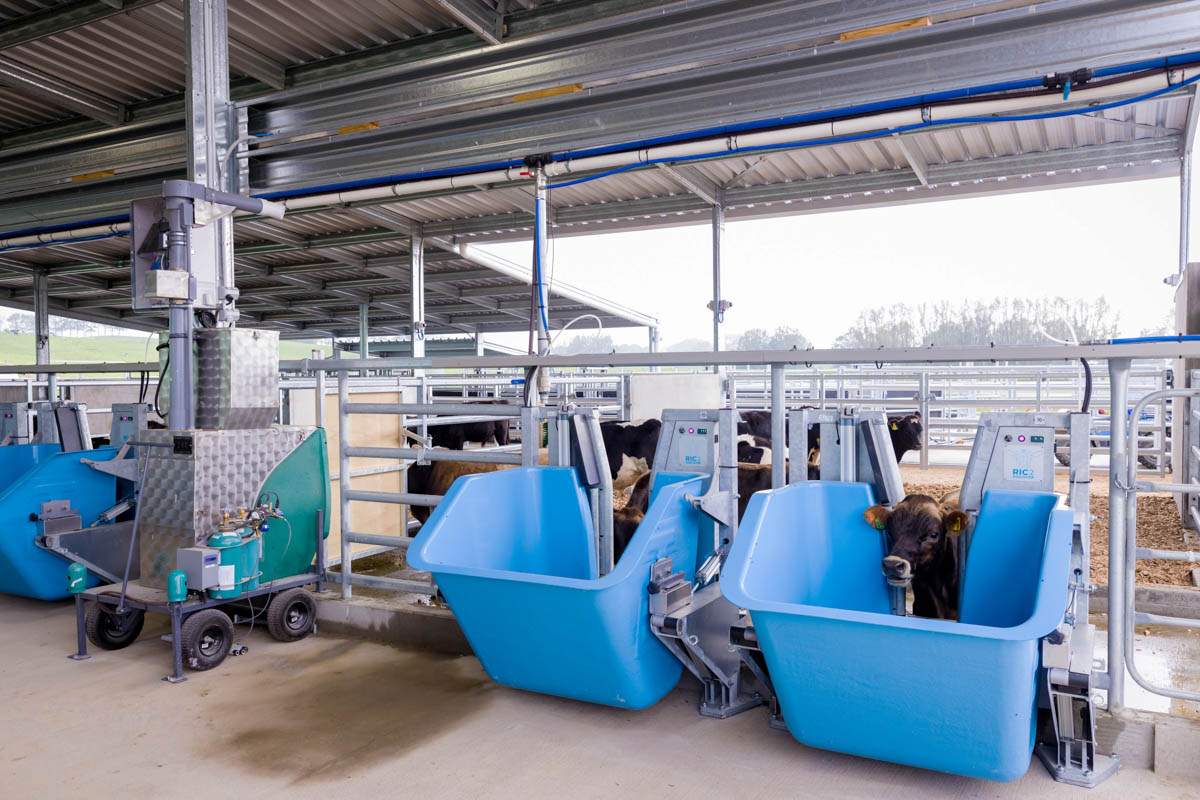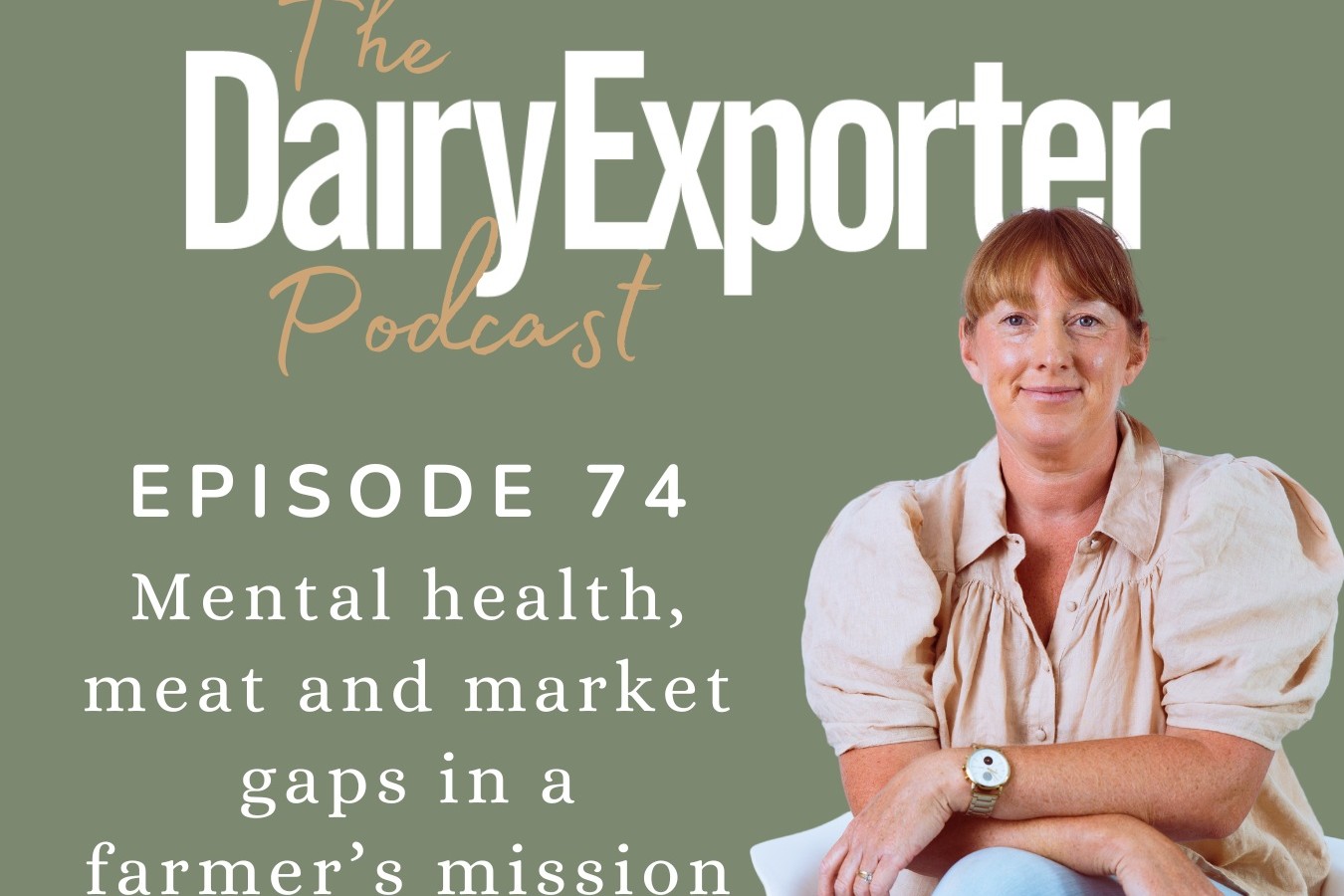Growing knowledge
A joint research programme between New Zealand and Ireland that started in February 2024 aims to better understand methane emissions from pasture-based systems.
Words Jane Kay

A four-year programme will see researchers, students, professors and database technology experts from DairyNZ (NZ) and Teagasc, University College Cork and the Irish Cattle Breeding Federation (Ireland) working together to quantify methane emissions from dairy cows in pasture-based systems. It aims to determine the effect stage of lactation and pasture species, season and management have on base methane emissions, and how these factors influence cows’ response to methane-reducing technologies (for example, feed additives).
It also aims to build on recent research that shows there are differences in methane emissions from dairy cows depending on these factors, despite emissions being primarily dependent on the amount of feed eaten.
The programme will also develop a methane database for pasture-based systems to ensure emissions and mitigations are accurately accounted for at a farm and national level in NZ and Ireland. Both countries face national and market targets to reduce methane.
DairyNZ was awarded funding in 2023 as part of a pilot joint research initiative between New Zealand and Ireland.
The joint research programme fits within a wider DairyNZ research programme that sees our scientists working to develop solutions that can be widely adopted on NZ farms to reduce emissions in a sustainable and viable manner.
Staying competitive
DairyNZ’s Less Methane research team works with NZ farmers, research organisations and commercial companies to develop workable and scalable mitigation solutions for use onfarm. The joint research programme strengthens the connection with Ireland and enables NZ to leverage its current and future research.
NZ farmers are among the world’s most emissions-efficient, and our continued research will help us maintain that position. Consumer and buyer demand and market entry conditions are key drivers for NZ dairy farmers to continue reducing emissions so we can remain globally competitive. That’s why finding solutions to help farmers reduce emissions while maintaining onfarm profit continues to be a research priority.
Over the past 20 years, potential technologies to reduce methane emissions have emerged from all over the world. These include:
- A vaccine to suppress the growth and function of methane-producing microbes (methanogens) in the rumen.
- Feed additives that when fed continuously to adult cows, alter rumen fermentation and temporarily reduce methane emissions.
- Feed additives that when fed to young calves, alter rumen development and permanently reduce methane emissions.
- Specific supplements, forages and crops that can reduce methane emissions.
- Genetic selection/breeding of cows to create low methane animals.
DairyNZ is focused on potential technologies that fit within NZ’s pasture-based systems. For mitigation solutions to work for NZ dairy farmers, they need to:
- Reduce total methane emissions (per hectare) and methane emissions efficiency (per kilogram of milksolids (kgMS).
- Maintain or improve animal health and performance, product composition and integrity and farm profitability and productivity.
- Fit NZ’s grazing farm systems.
- Be acceptable to consumers (domestic and international).
- Be credited in onfarm methane accounting and in the national GHG inventory.
The technologies that DairyNZ has been focusing on include:
- Early life intervention – feeding a natural product to young calves, with the aim of reducing methane emissions for the lifetime of the animal. This is an attractive delivery mechanism for NZ as it is cost-effective, can benefit dairy and beef industries and occurs a long way from product processing (such as milk and meat harvesting).
- Different delivery options to incorporate feed additives into our grazing systems, such as slow-release formulations and rumen boluses that provide a consistent release of a methane-reducing product over a prolonged period, to mimic the effect of continuous intake via mixed rations.
- In-paddock automated feeders that control the frequency, timing and amount of feed additive consumed by cows while they’re out grazing.
- Forage species, seasonality and management to understand the effect on baseline methane emissions and the response to other mitigation technologies in a pasture-based system.
Most of the research on methane mitigation technologies is completed at Lye Farm, one of DairyNZ’s two Waikato research farms. Lye and Scott Farms are an important sector resource, enabling our scientists to carry out pasture, animal and farm systems trials under relevant conditions. This ensures the technologies and tools developed are practical and can be widely adopted into different farm systems. Farmers are involved in all the projects, to provide their thoughts and advice on opportunities or barriers for adoption of these solutions into NZ farm systems.
We’re excited about our continued work alongside farmers and other sector and research organisations to develop mitigation solutions for our unique pasture-based farm systems – and to get ahead of the environmental challenges farmers face.





